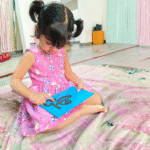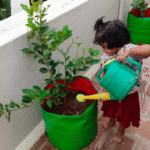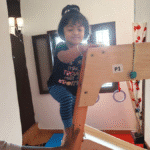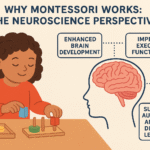1. Freedom Within Limits Builds Confidence
Montessori classrooms give children the freedom to choose their work—within a carefully prepared environment and clear boundaries. This balance helps children feel in control while also secure. They learn to make decisions, take responsibility, and trust their own abilities—key building blocks for self-esteem and confidence.
2. Respect for the Child Encourages Self-Worth
3. Intrinsic Motivation Reduces Pressure
4. Mixed-Age Groups Foster Empathy and Belonging
5. A Calm, Peaceful Environment Nurtures Emotional Balance
6. Developmentally-Aligned Learning Reduces Frustration
Montessori education follows each child’s natural growth and “sensitive periods” of learning. Instead of pushing children before they’re ready, the approach supports their development in a way that feels natural and empowering—reducing frustration and boosting confidence.
7. Independence Builds Resilience
Montessori: A Foundation for Lifelong Well-Being
Montessori education doesn’t just prepare children for school—it prepares them for life. By nurturing the whole child—body, mind, and spirit—it promotes strong psychological health from the very beginning.
Whether you’re a parent, teacher, or caregiver, choosing Montessori means choosing a peaceful, respectful, and empowering path for your child’s emotional and mental well-being.







